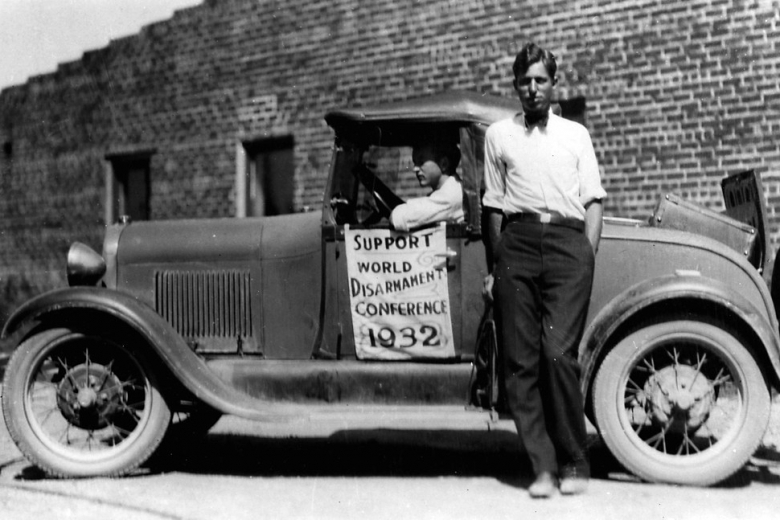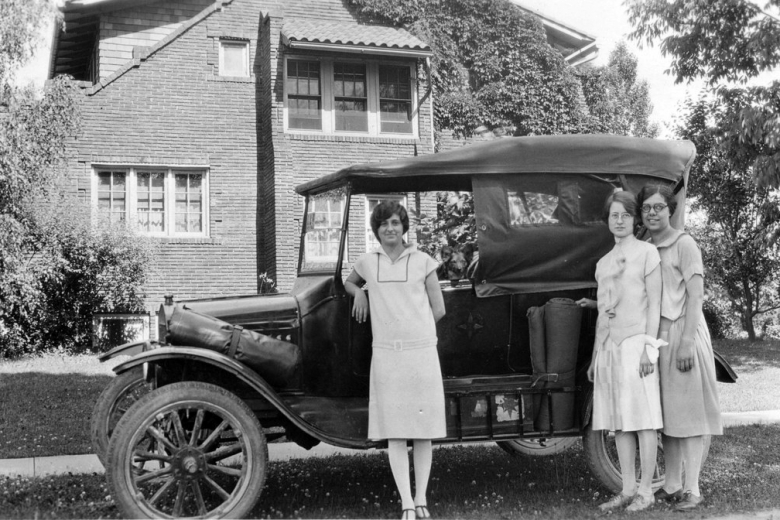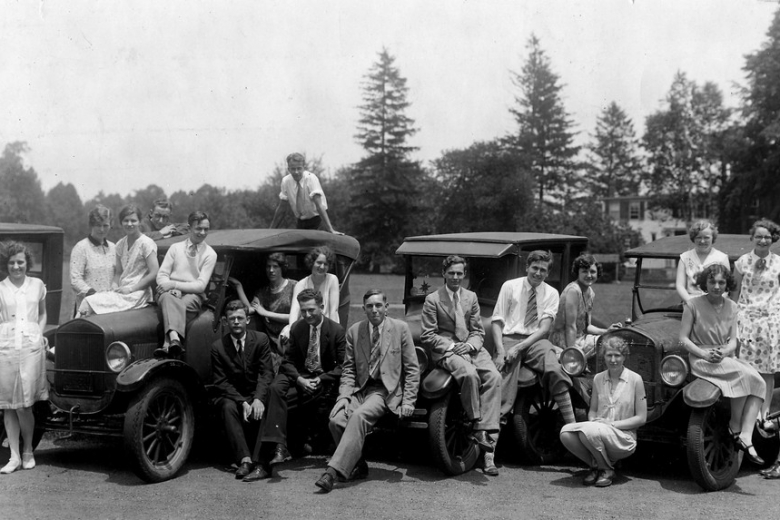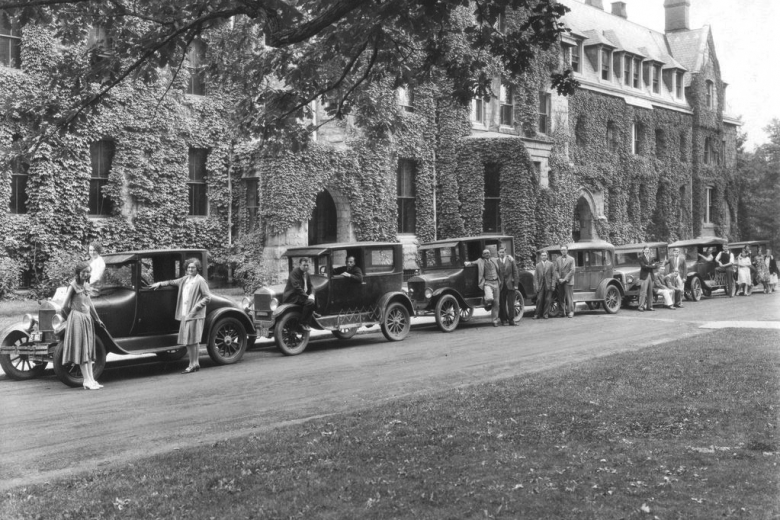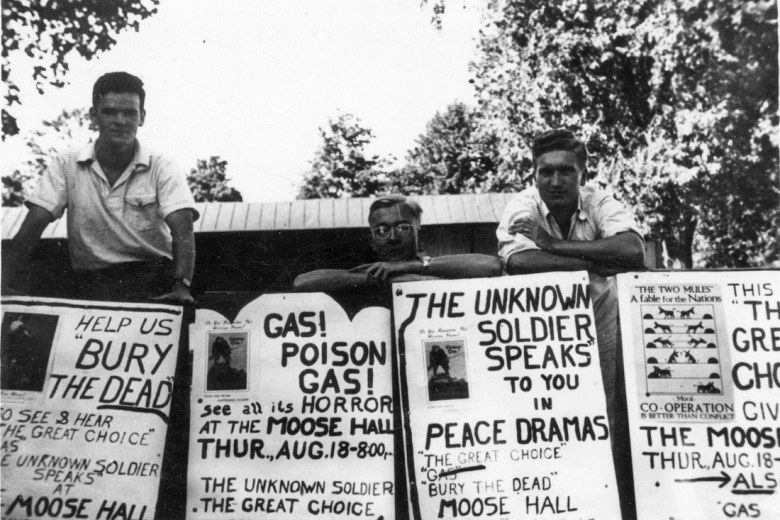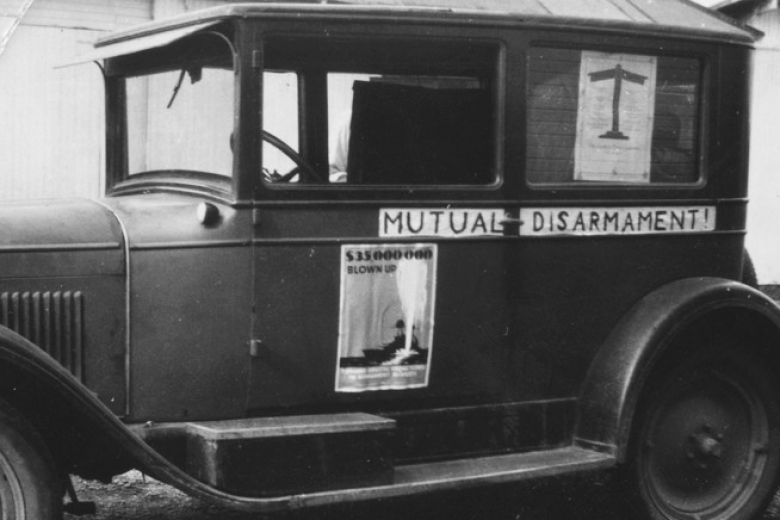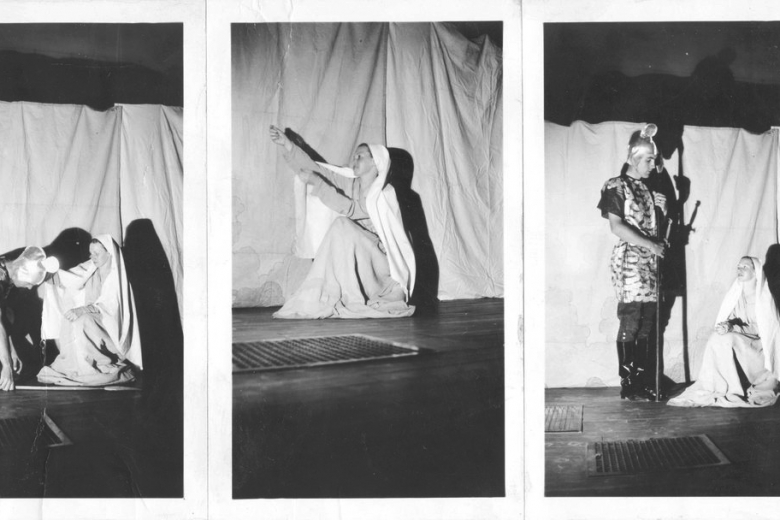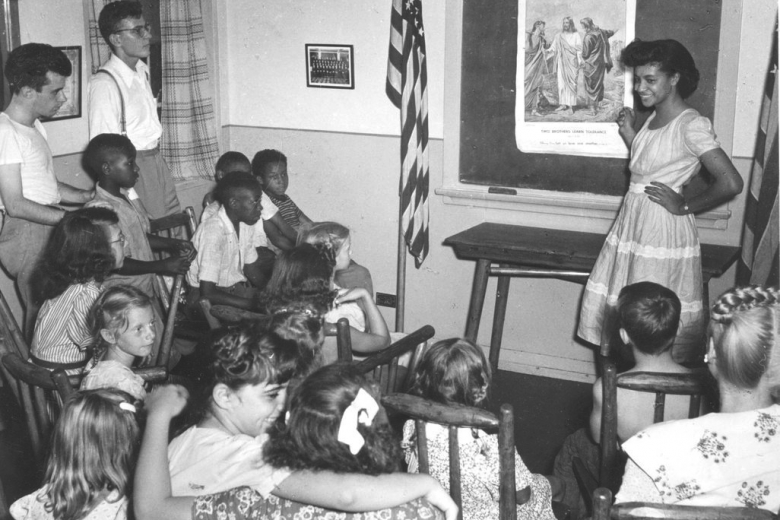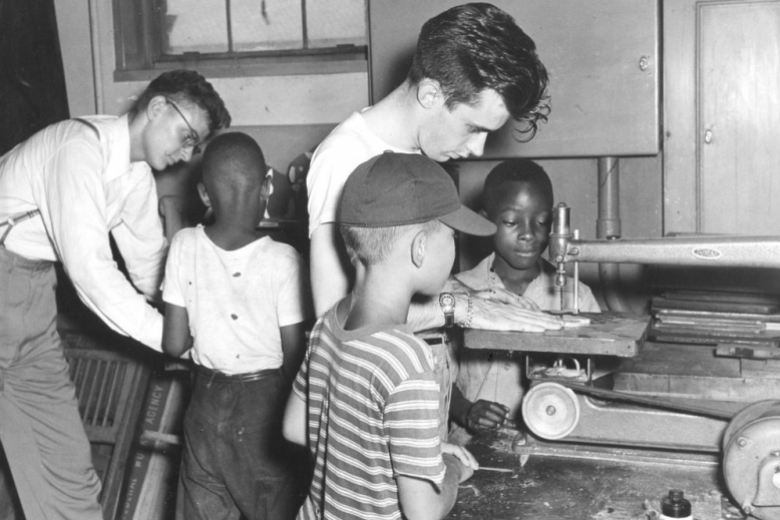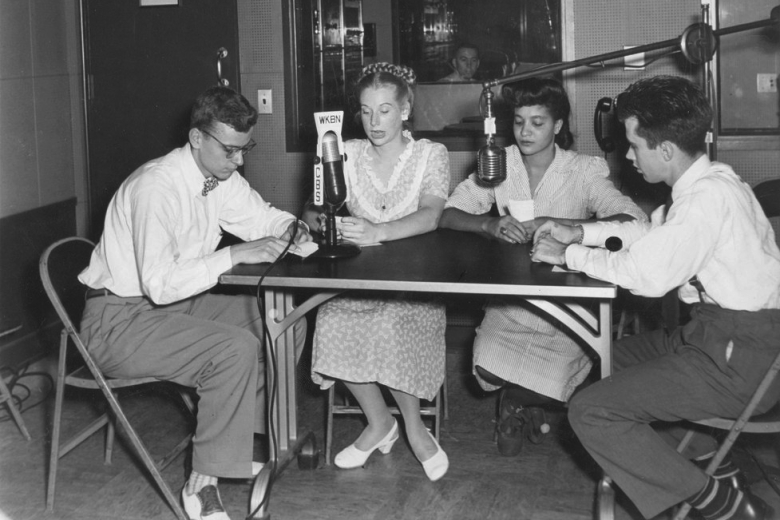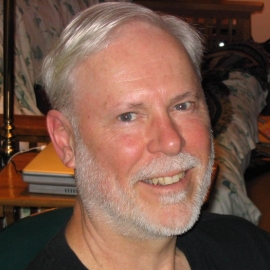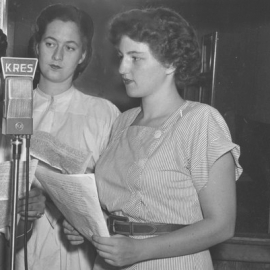In the 1920s, young pacifists’ urgent desire to demonstrate their commitment gave rise to AFSC’s “Peace Caravans.” Small teams of men or women received training in peace education and spent their summer traveling from town to town—speaking at churches and community gatherings, canvassing door to door, and doing radio and newspaper publicity. Although the caravans ceased during WW II, they restarted in 1955 and lasted into the 1960s, when views among Quakers about offering separate programs for youth began to change.
AFSC caravans had a lasting impact beyond traditional peace education:
- For many participants, the international and interracial caravans marked their first experience with people of another race as peers and partners.
- Teams raised public awareness that economic and racial justice are important components of peace building.


